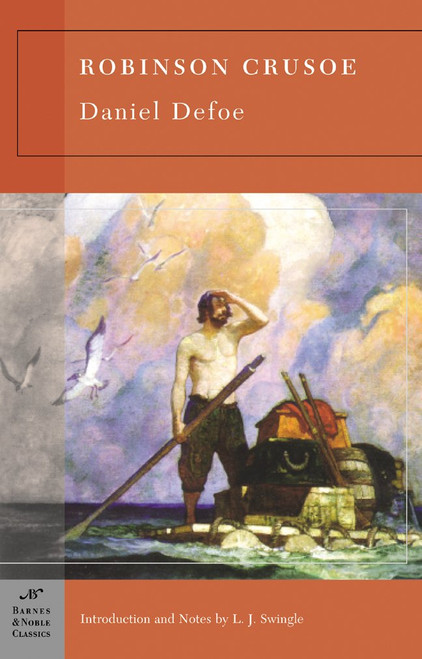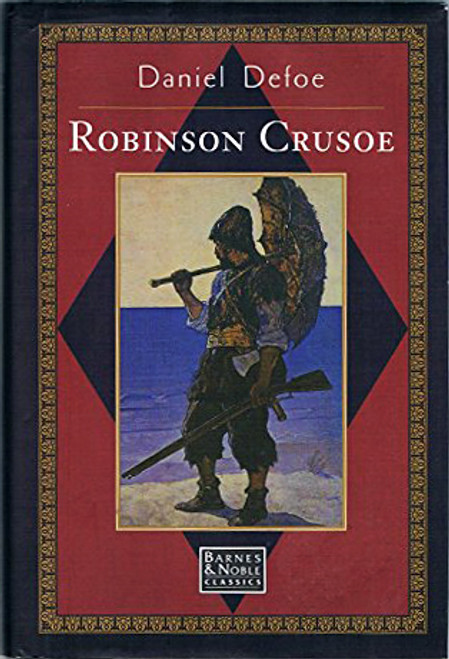Widely regarded as the first English novel, Daniel Defoe’s Robinson Crusoe is one of the most popular and influential adventure stories of all time. This classic tale of shipwreck and survival on an uninhabited island was an instant success when first published in 1719 and has inspired countless imitations, prompting Jules Verne to admit: "We have all written 'Robinsons,' but is a moot question if any of them would have seen the light had it not been for their famous prototype."
In his own words, Robinson Crusoe tells of the terrible storm that drowned all his shipmates and left him marooned on a deserted island. Forced to overcome despair, doubt, and self-pity, he struggles to create a life for himself in the wilderness. From practically nothing, Crusoe painstakingly learns how to make pottery, grow crops, domesticate livestock, and build a house. His many adventures are recounted in vivid detail, including a fierce battle with cannibals and his rescue of Friday, the man who becomes his trusted companion.
Full of enchanting detail and daring heroics, Robinson Crusoe is a celebration of courage, patience, ingenuity, and hard work.
Introduction and Notes by L.J. Swingle
About the Author
London-born Daniel Defoe (1660-1731) pursued a variety of careers including merchant, soldier, secret agent, and political pamphleteer. He wrote books on economics, history, biography, and crime. But he is best remembered for his fiction, which he began to write late in his life and which includes the novels Moll Flanders, Roxana, and the celebrated Robinson Crusoe.
L. J. Swingle is Professor Emeritus of English Literature at the University of Kentucky, where his primary field of study is the intellectual contexts of British Romanticism as reflected in the works of eighteenth- and nineteenth-century poets and novelists.



